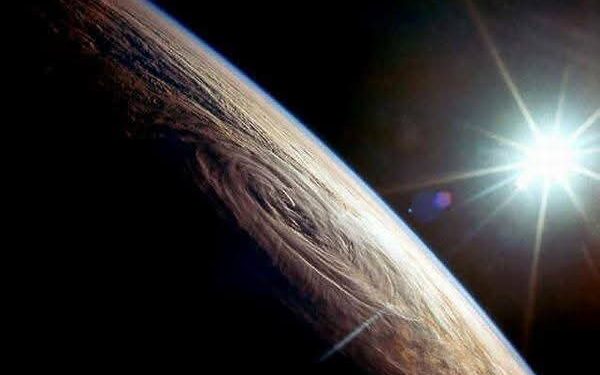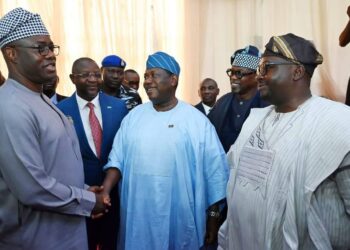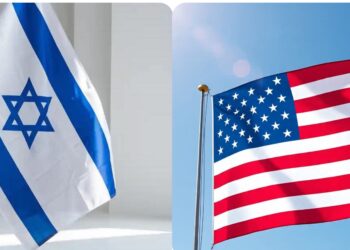
“And [mention] when your Lord said to the angels, ‘Indeed, I will make upon the earth a khalīfah (successive authority).’ They said, ‘Will You place upon it one who causes corruption and sheds blood, while we declare Your praise and sanctify You?’ He said, ‘Indeed, I know that which you do not know.’”
— Holy Qur’an, Surah Al-Baqarah 2:30
When Allah Subhānahu wa Ta‘ālā declared His intention to place a vicegerent—humankind—on Earth, the angels responded not with disobedience, but with a question that still pierces the conscience of our modern world: Will You place therein one who will cause corruption and shed blood?
Looking around today, their question feels hauntingly prophetic.
From the relentless airstrikes in Gaza, the unspeakable genocide in South Sudan, to the drawn-out war between Russia and Ukraine, the world seems immersed in blood. In Nigeria, the situation is similarly dire: Boko Haram’s terror, the massacres in Plateau and Benue States, herder-farmer conflicts, kidnappings, and systemic government corruption all point to a nation—like many others—that is spiraling into chaos.
Are we not then living proof of the angels’ concern?
Tafsir Insights: Were the Angels Referring to Previous Creations?
Classical scholars like Imam Al-Qurtubi and Ibn Kathir offer illuminating interpretations of this verse. According to Ibn Kathir, some scholars opined that the angels were aware of previous beings—like the jinn—who had lived on Earth before humans and caused chaos. The angels, therefore, were not questioning Allah’s wisdom but seeking clarification based on prior experiences.
Tafsir al-Jalalayn also confirms that the angels’ inquiry was rooted in sincere astonishment, not defiance. Their concern was: if humans, with free will, would commit such atrocities, why not assign the role of Earth’s caretaker to them—the angels—who were always obedient?
Yet Allah answered: “Indeed, I know that which you do not know.” A verse that remains layered with divine wisdom.
What Did Allah Know That the Angels Didn’t?
According to the continuation of Surah Al-Baqarah (2:31), Allah taught Adam the names of all things, signifying the human capacity for knowledge, language, morality, and progress—qualities that even angels were not given.
The Prophet Muhammad (peace be upon him) elaborated on this in a Hadith recorded in Sahih Muslim:
“Verily, Allah has created Adam in His image… and taught him the names of all things.”
Humanity, then, was designed with the capacity not just for evil, but for immense good. Compassion, charity, creativity, justice—all lie within human potential. Allah’s knowledge of our higher purpose is what the angels could not see.
But today, that potential is deeply shadowed by our actions.
The Human Condition Across Scriptures
The idea of mankind’s duality—capacity for good and evil—is not unique to Islam. The Bible and Torah also echo this theological truth.
In Genesis 4, the Bible records the first murder:
“Cain rose up against Abel his brother, and killed him.”
The Torah, too, is filled with accounts of human rebellion and divine warnings. In Deuteronomy 32:5, it says:
“They have corrupted themselves; their spot is not the spot of His children: they are a perverse and crooked generation.”
Yet in all these texts, God does not erase humanity. Instead, He calls for repentance, accountability, and higher moral living.
Nigeria as a Case Study: Have We Justified the Trust?
As a Nigerian journalist and Muslim, it pains me to see how deeply these realities apply to my own country. Our leaders, cloaked in power, often serve only themselves. Our streets bleed from insurgency and ethnic violence. And our people, instead of standing united, often turn against one another.
Have we lived up to the role of khalīfah? Are we honoring the trust Allah placed in us?
The Qur’an reminds us in Surah Al-Ahzab (33:72):
“Indeed, We offered the Trust to the heavens and the earth and the mountains, and they declined to bear it and feared it; but man [undertook to] bear it. Indeed, he was unjust and ignorant.”
This verse reveals the gravity of human responsibility. We accepted a burden even the mountains feared, and yet we fail to carry it justly.
READ ALSO:Ambassador Ajadi Graces Torotoro CDA Inauguration, Urges Passion-Driven Leadership
Is Peace Still Possible?
So, when Allah says, “Indeed, I know what you do not know,” was it a promise of global peace?
Not necessarily in the political sense, but it is a divine assurance that humanity possesses an unseen capacity—an inner light. A chance to correct its course. To build rather than destroy. To uphold justice rather than corruption. To live as true khalīfah, caretakers of Earth.
In this divine promise lies hope.
Because even amid darkness, humans can rise. As Allah says in Surah Ash-Shams (91:7–8):
“And [by] the soul and He who proportioned it. And inspired it [with discernment of] its wickedness and its righteousness.”
READ ALSO:The Lagos Governorship Plot (II): Ambode’s Redemption: Lagos APC’s Secret Weapon for 2027
We were created with free will. We can choose righteousness.
Let us pray we begin to.
About the Author:
Ibrahim Taofeek Kegbegbe is a Nigerian journalist, Qur’anic thinker, and social commentator with an interest in theology, politics, and international justice. He is a graduate of the Nigerian Institute of Journalism and a columnist on African affairs.
















